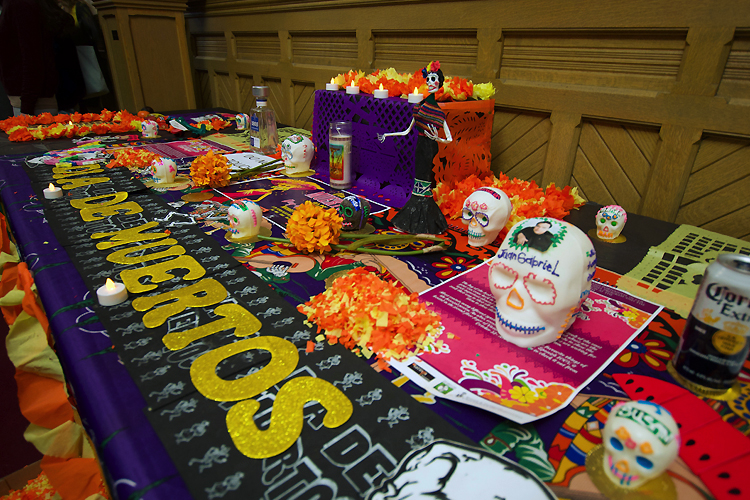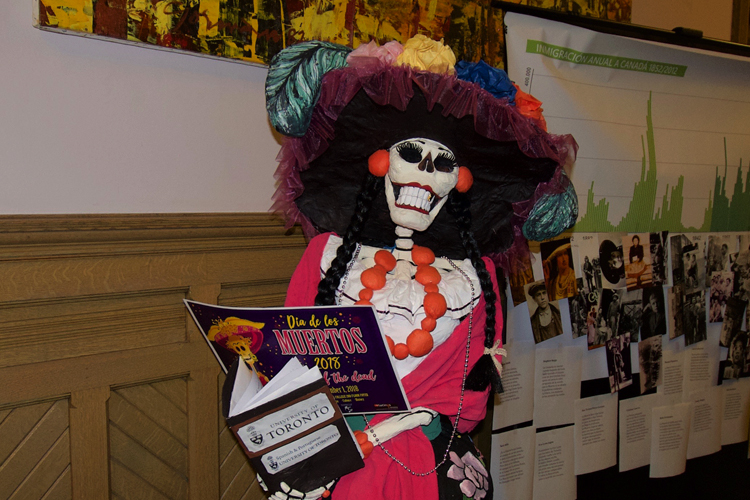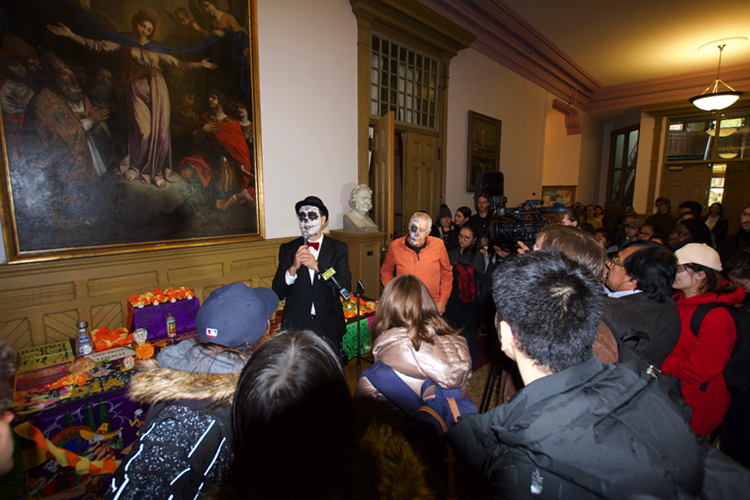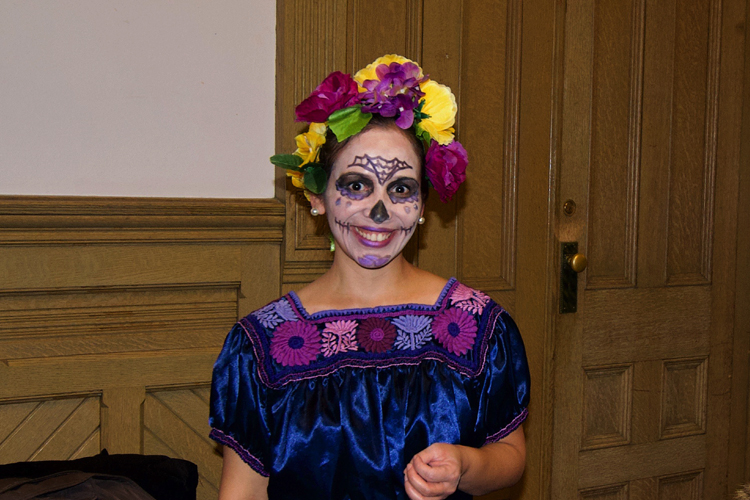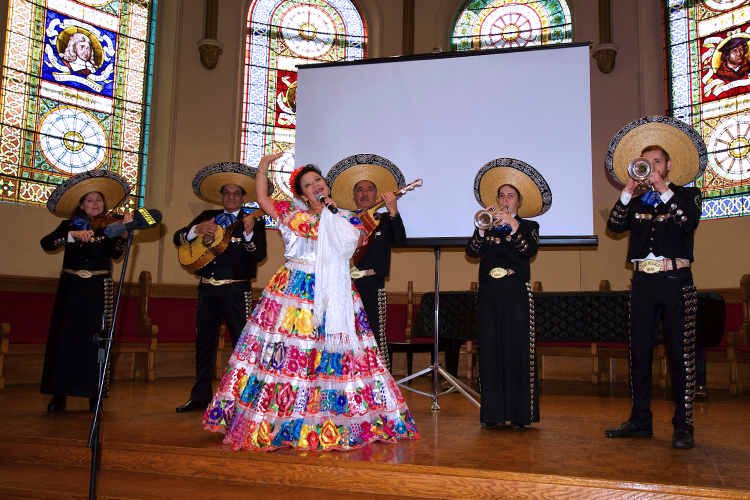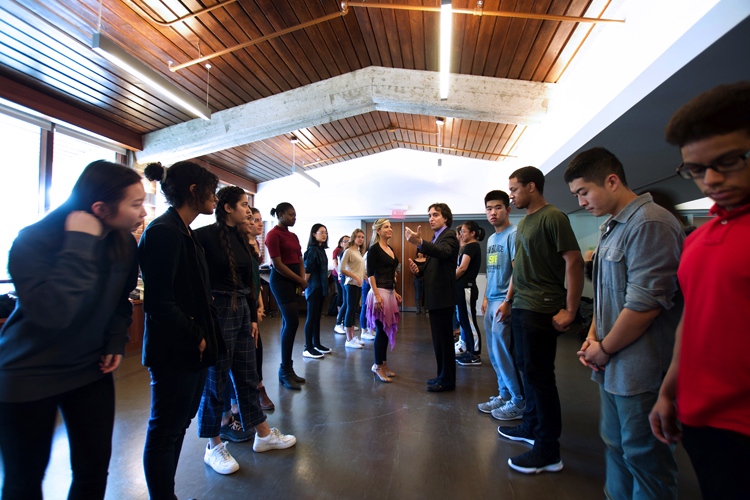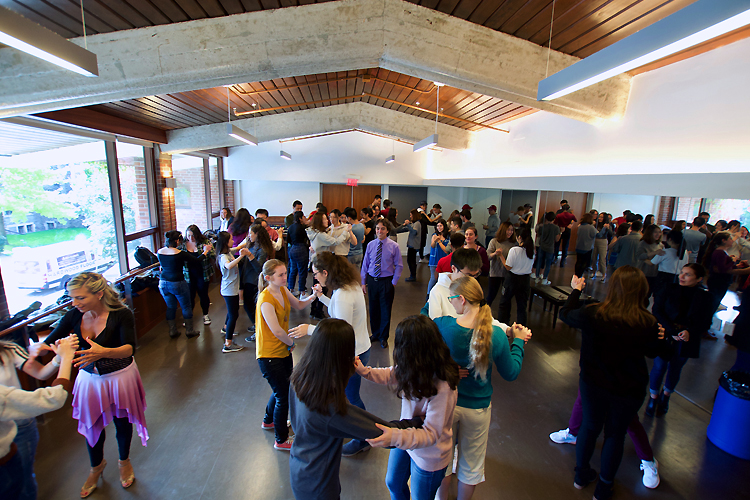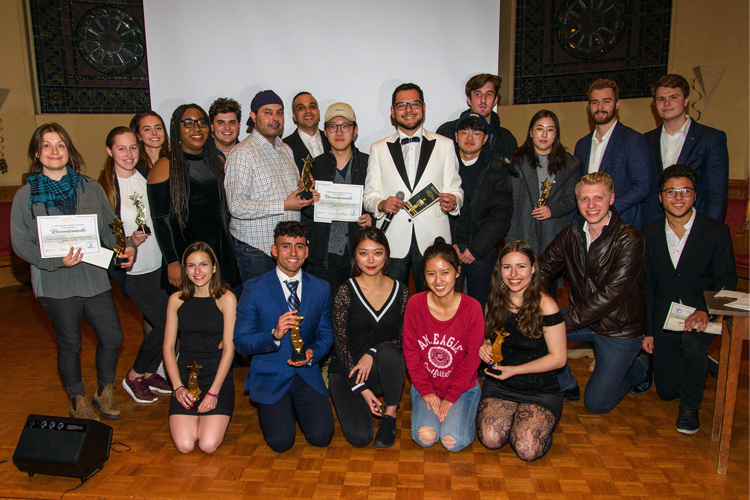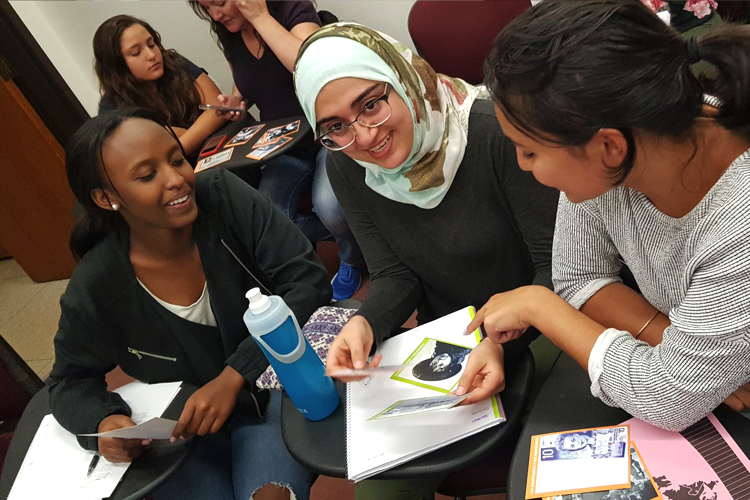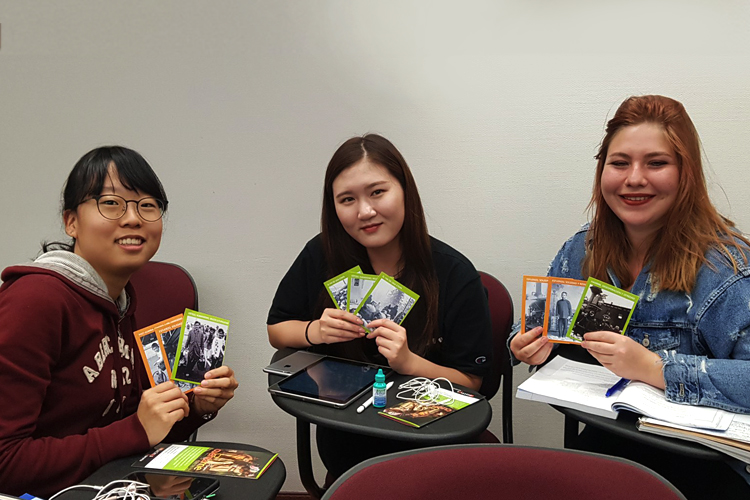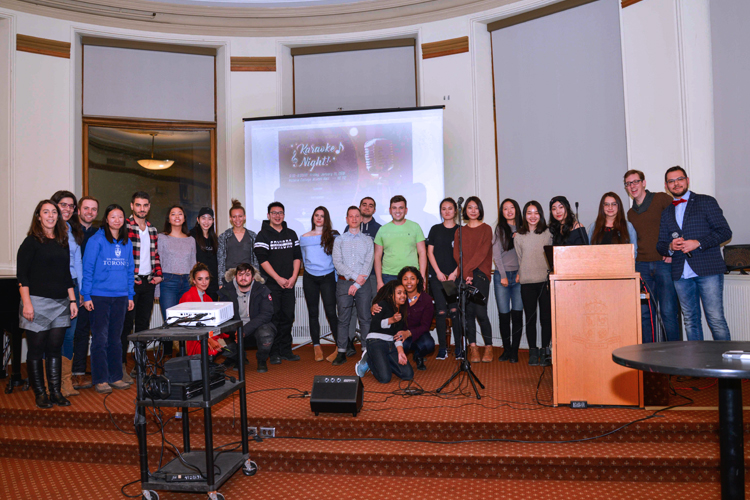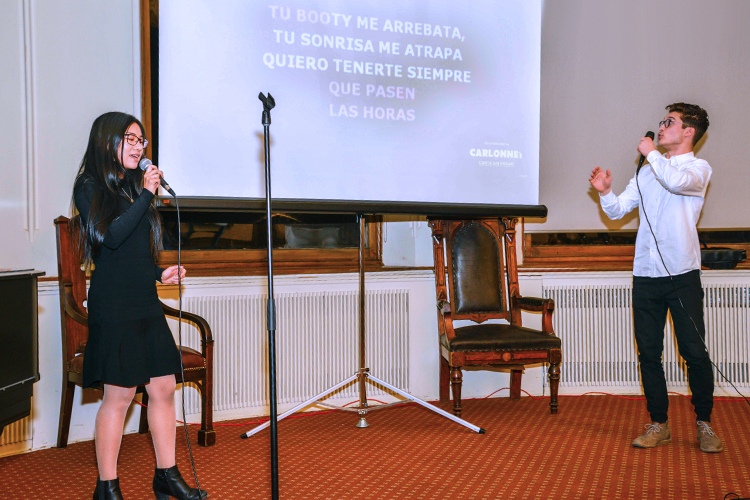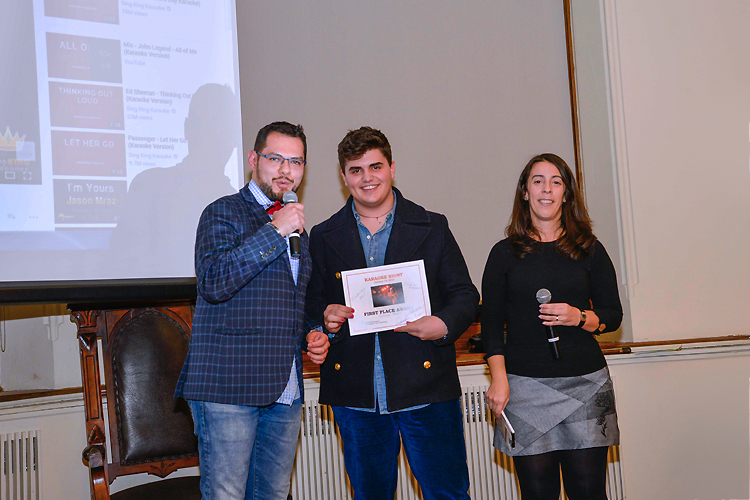Juan Carlos Rocha Osornio believes that to master a new language, simply memorizing grammatical rules and completing exercises is not enough.
“Learning a language does not have to be a boring process with just verb memorization,” says Rocha Osornio, an assistant professor in the Faculty of Arts & Science’s Department of Spanish & Portuguese. “A language is a living entity that needs to be discovered day by day.”
Using teaching methods that emphasize interaction and incorporate cultural experiences and new technologies, he hopes to show students that learning Spanish is fun – and can lead to valuable connections.
A native of Querétaro City in central Mexico, Rocha Osornio moved to the United States when he was 17 to study at Texas A&M University-Commerce, where he first began teaching Spanish during his master’s studies. After completing a PhD in Hispanic Studies at Western University, he taught at numerous schools across Canada before joining U of T two years ago.
As the department’s Spanish Language Coordinator, he finds creative ways to make learning Spanish more engaging for students.
To connect traditional classroom lessons with real-life experience, last year Rocha Osornio partnered with local Spanish-speaking organizations to incorporate community engagement into his 300-level Advanced Spanish course. Seventeen students enrolled in the course worked on projects throughout the winter semester, getting an opportunity to practice their language skills with native Spanish speakers while contributing to the community and making new connections in the process.
“Students perform better when they see that learning Spanish is about communicating with people, even if they make mistakes,” says Rocha Osornio. “More and more we are seeing that community engagement has the potential to offer a lot of meaningful experiences to our students, something much needed in today’s world.”
Partner organizations include ChocoSol, a Toronto-based social enterprise founded in Mexico that makes artisanal chocolate; Collective 65, a non-profit photography and art school in Toronto for seniors (many of whom are native Spanish speakers); Latin@s en Toronto, a non-profit organization focused on social justice, sustainable development and the enhancement of human rights; and the Consulate General of Argentina in Toronto.
Rocha Osornio is continuing the community engagement initiative this year, and hopes to incorporate opportunities for second-year students next year.
Beyond the classroom, he is also inspiring students to experience Spanish culture by organizing special events held throughout the year.
The Spanish “Oscars” – an annual event that invites students in any Spanish language course to submit original short videos in Spanish and compete for prizes – has been a big hit with students. Other popular events include a Tango dance workshop, a karaoke night where students sing songs in Spanish or Portuguese, and a Day of the Dead celebration, held this year on Nov. 1st.
“The events bring together students and faculty from across the department, which is especially important in a large university such as ours,” he says. “Often students – and faculty – are so immersed in their own world that they miss out on connecting with each other beyond class time, so the events are a great opportunity to meet new people.”
With his expertise in using technology for teaching and learning, Rocha Osornio is also helping the department adopt new tools to benefit students and streamline processes.
To improve the department’s placement exam process, which currently assesses students’ proficiency through face-to-face interviews to place them in the appropriate course, he is working to develop an online test that students can complete through Quercus. The new technology – which is anticipated to debut next fall – will save time for both faculty and students.
He is also collaborating with Latin@s en Toronto to develop an app for the Advanced Spanish course that will feature audio and video interviews with native speakers. The app will replace the course textbook and students can also use it to submit tests and quizzes. Eventually, Rocha Osornio hopes to use the app for other courses as well.
Cultural events held by the Department of Spanish & Portuguese
